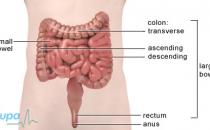Breast awareness

Published by Bupa's Health Information Team, June 2011.
This factsheet is for women who would like information about being breast aware.
Breast awareness means knowing how your breasts look and feel, and knowing what changes to look out for.
About breast awareness
How to be breast aware
Five-point breast awareness code
Common breast changes
Breast changes to seek advice about
About breast awareness
Being breast aware means being familiar with how your breasts look and feel, and knowing how they change at different times of the month. Knowing what is normal for you will help you spot any unusual changes if they happen.
Breast cancer is the most common type of cancer in women in the UK. It affects one in eight women at some time in their life. Being breast aware can help to find breast cancer early. The earlier it's found, the simpler the treatment and the better your chance of a full recovery.
How to be breast aware
Breast awareness means getting into the habit of feeling and looking at your breasts from time-to-time so you know what’s normal for you.
There isn’t a formal set of instructions for checking your breasts. Check yourself in any way that’s comfortable and convenient for you. For example, you may find it easier to:
- look for changes in your breasts before a bath or shower, using a mirror to view your breasts from different angles
- feel for changes in your breasts in the bath or shower, using soapy hands
- check your breasts when you’re lying down in bed
Once you’re familiar with the usual feel and appearance of your breasts, you will notice if anything changes.
If you feel uncomfortable or anxious about checking your breasts, you may find it helpful to discuss your worries with your GP or a nurse.
Five-point breast awareness code
Follow the five-point breast awareness code.
- 1. Know what's normal for you.
- 2. Check both the look and feel of your breasts.
- 3. Know what changes to look and feel for.
- 4. Report any changes to your GP straight away.
- 5. Attend routine breast screening if you're 50 or over.
Common breast changes
our breasts will change throughout life and will be affected by your menstrual cycle, your age, pregnancy, the menopause and taking the contraceptive pill. So it’s important to remember that changes in how your breasts look and feel aren’t always a cause for concern. For example, it’s normal for your breasts to feel tender or lumpy just before your period, especially near your armpits. This happens when the milk-producing tissue in your breasts becomes active.
During and after the menopause, your breasts may change in size. They may also feel softer and less lumpy as activity in the milk-producing tissue of your breasts stops.
If you have a hysterectomy before the menopause, your breasts may still feel tender or lumpy each month, even though your periods have stopped. This is because your ovaries are still working and producing hormones. You may notice monthly changes in your breasts until the time when your periods would have stopped naturally (the menopause).
Breast changes to seek advice about
See your GP if you notice any changes that aren’t normal for you, especially if the changes are only in one breast. Breast changes to look out for include:
- a change in the size, shape or feel of your breast
- dimpling, puckering or redness of the skin
- a rash or crusting on your nipple or surrounding area
- a change in your nipple, such as a change in the shape or if it turns into the breast (becomes inverted)
- a discharge from your nipple (unless you’re breastfeeding)
- bleeding from your nipple area
- pain in part of your breast or armpit
- swelling, thickening or a lump in your breast or armpit
These symptoms don’t mean that you have breast cancer. But if you have them, see your GP.
Additonal information
World Health Organization
www.who.int
Sources
- Breast cancer. Cancer Research UK. www.cancerhelp.org.uk, accessed 12 May 2011
- Breast awareness. Breast Cancer Care. www.breastcancercare.org.uk, published December 2010
- Breast cancer – risk. Breast Cancer Care. www.breastcancercare.org.uk, published March 2011
- Cancer questions and answers – how is breastfeeding related to breast cancer? Cancer Research UK. www.cancerhelp.org.uk, accessed 12 May 2011
















